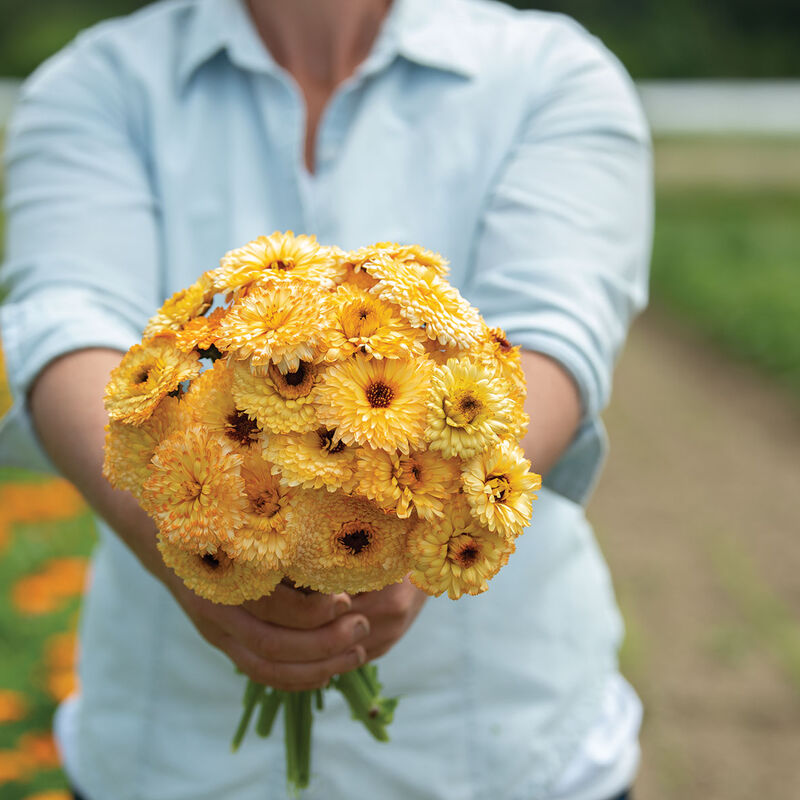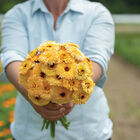Pacific Apricot Beauty Calendula Seed
Pacific Apricot Beauty Calendula Seed
Pastel melon color.
2–3" wide fully double blooms. Tall, vigorous, healthy plants with sturdy stems. More uniform plant habit and flower size than other calendulas in our trials within this color range. Cream-colored ray petals darken to apricot at the petal edges. Also known as pot marigold, common marigold, and Scotch marigold.Specs:
DAYS TO GERMINATION:
7-14 days at 70°F (21°C)SOWING:
Direct seed (recommended) - After danger of frost, sow at a depth of 1/4". Make 2-3 successive sowings 2-3 weeks apart for continuous blooms from summer to heavy frost. Transplant - Sow 4-5 weeks before planting out.LIGHT PREFERENCE:
Sun/Part Shade.PLANT HEIGHT:
Varies.PLANT SPACING:
6-12".HARDINESS ZONES:
Annual.HARVEST:
Cut Flowers: Harvest once the bloom is about 50% open.Edible: Harvest once the flowers are fully open and pull petals off before using in dishes. Do not eat the calyx or flower centers.
SOIL REQUIREMENTS:
Rich, well-drained soil.USES:
Cut flower. Edible flower. Medicinal: flowers are used in antiseptic tinctures and healing skin ointments. Beds, borders, containers, mass plantings, and cottage gardens.SCIENTIFIC NAME:
Calendula officinalisALTERNATE NAMES:
Pot marigold, common marigold, Scotch marigoldJohnny's is committed to your success, every step of the way.
We want you, our customer, to be 100% satisfied with all of our seeds, tools, and supplies.
If anything you purchase from us proves unsatisfactory, we will either replace the item or refund the purchase price.









